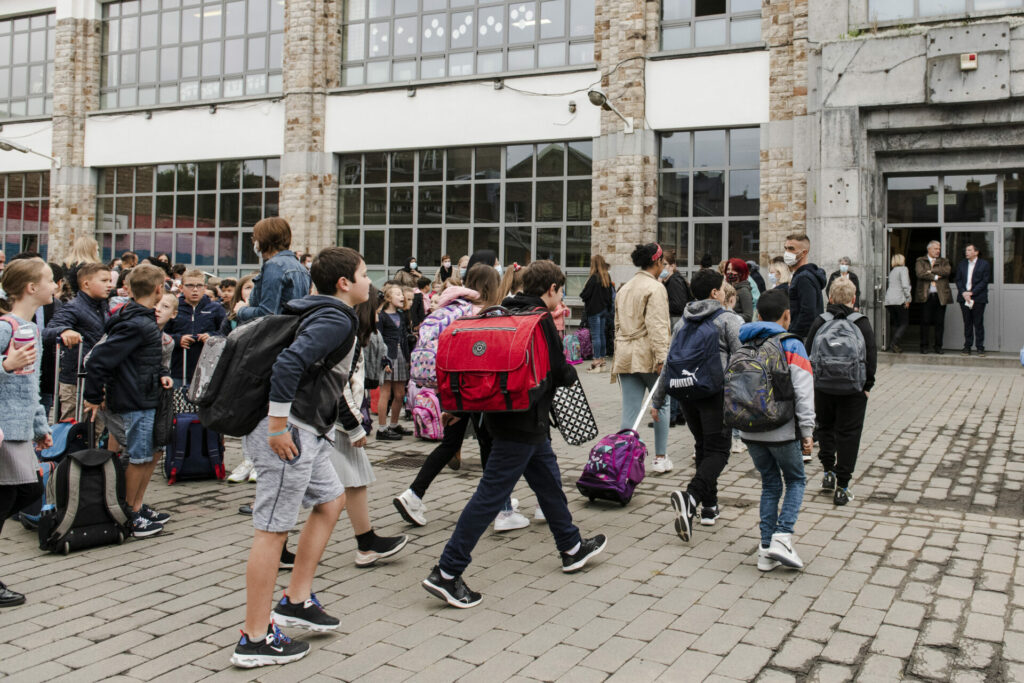In the pipeline since 2014, the 'Pact for an Excellence in Education' in French-speaking schools will finally see the light of day at the start of the 2022-2023 school year, announced the Francophone Education Minister Caroline Désir.
After a change to the school calendar was announced earlier in the year, Désir announced another series of wholesale changes to Wallonia's and Brussels' French-speaking schools on Monday.
Here is the rundown of what changes you can expect from September.
One core curriculum from primary onwards
Chief among these changes is the introduction of the core curriculum from the first and second years of primary school.
The core curriculum, which aims to progressively ensure a common learning experience from the first year of pre-school until the third year of secondary education, had already been in place in Francophone pre-schools since 2020.
With this now also being implemented in primary schools, students will follow the same path until they are 15, after which they are able to reorient themselves.
Two teachers per primary class
Primary classes will also see an increase in co-teaching for four periods per week. In the first two years of primary school, each class will have two teachers instead of one. From the third year, this will be limited to two periods per week.
Related News
- Parents voice concerns about new school calendar
- 'Six months behind': The impact of Covid-19 on Belgian education
- Chronic teacher shortage causes exams to be cancelled
To support this increase, 425 people will be employed full-time by the Francophone Community Government, with 1,657 needed to ensure the success of this initiative in the long term.
Nine new reference points
The Education Commission in Brussels' French-speaking Parliament adopted nine new reference points on which subject matter has to be based.
Replacing the 'Core Skills' framework that had been unchanged for 25 years, Désir stated that these new reference points would help students "broaden their range of skills and develop different forms of intelligence so that, at the end of the core curriculum, they can make an informed choice of direction."
The new reference points have been grouped into five main areas, ranging from mathematics to cultural and artistic education, as well as manual, technical, technological, and digital training.
The integration of three cross-curricular areas among various lessons has also been planned in the form of 'creativity, engagement, and entrepreneurship,' 'learning how to learn and to learn decision-making,' as well as 'learning how to orientate.'
The transitions between pre-school and primary education, as well as between primary and secondary education, will also receive special attention.

